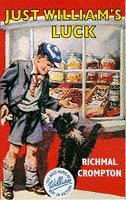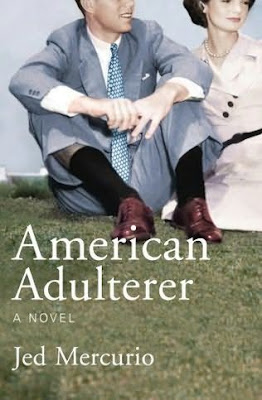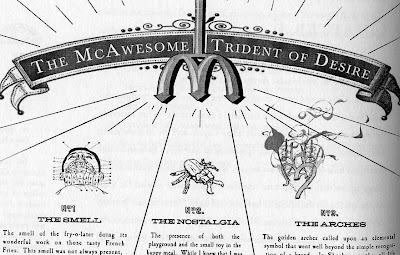
Michael Kimball kindly agreed to answer some questions about his novel Dear Everybody on this, the final stop of his blog tour. My review can be found here, but far more interesting is to talk to the man himself and find out more about those publishing exclusives I promised you.....
on this, the final stop of his blog tour. My review can be found here, but far more interesting is to talk to the man himself and find out more about those publishing exclusives I promised you.....
Dear Everybody obviously has an interesting format. How did the book take shape? Did you plan to write it as a series of documents?
Dear Everybody started with one short letter, a man apologizing to a woman for standing her up on a date; the man is wondering if they had gone out that night, if maybe his whole life would have been different, better. At first, I didn’t know then who was speaking or that it was a suicide letter, but I did have a strong voice and a skewed way of thinking. That one letter led to a rush of about 100 letters—Jonathon, the main character, apologizing to nearly everybody he has ever known—and the novel opened up from there. The other documents—the psychological evaluations, the newspaper articles, the yearbook quotes, the obituary, the eulogy, the last will and testament—all of that came after the letters.
I am guessing that writing an epistolary novel involved creating lots of letters which didn't make it into the finished book. Are there any that were edited out that you wish had survived?
 The very first letter that I wrote didn’t make it into the final novel and I cut out maybe 100 or so more. I collected a bunch of them and they will soon in a chapbook called “Some Recently Discovered Letters from Jonathon Bender, Weatherman (b. 1967-d.1999)”—out with Publishing Genius Press.
The very first letter that I wrote didn’t make it into the final novel and I cut out maybe 100 or so more. I collected a bunch of them and they will soon in a chapbook called “Some Recently Discovered Letters from Jonathon Bender, Weatherman (b. 1967-d.1999)”—out with Publishing Genius Press.
That first letter is just this:
Dear Jessica Cooper,
I’m sorry that I stood you up for the date that we were supposed to have on Valentine’s Day in 1989. Do you think that we could have been happy together?
Robert is confused by the encyclopedia entries that he finds amongst Jonathon's belongings and I'll confess that I was a little too. Can you say anything about the relevance of those pieces?The idea was that those pieces would function in a few ways—first off by advancing the narrative in a new way; also by calling attention to certain thematics; but mostly they are supposed to call the narrators into question a little bit, both Jonathon and his brother, Robert, adding a certain unreliable quality that both draws the reader in and adds to the emotional complexity.
That unreliability is really key isn't it. The whole idea of having Robert, who never liked his brother, be the one who presents him to us is quite an interesting set-up. How did you come to make that decision?The unreliability is absolutely key. And Robert writing the introduction was one of the happy accidents in writing Dear Everybody. That introduction was actually the third introduction that I wrote for the book. The first one was written by a fictional Michael Kimball. The second one was written by Jonathon’s sister, who was ultimately written out of the book by Robert. I knew Robert was right for the introduction, and as the one who collects the documents of the book, when I realized how he could call the truth of the narrative into question, but in a way that, paradoxically, seems to make what happened all the more clear.
One of the great strengths of the book is the way you allow the reader to decide for themselves what may have happened. This is most obvious with Robert and his denial of abuse which leads him to censoring one of the letters. Why did you choose to keep things ambiguous?
I wrote what happened to Robert and then later decided to black out those lines. My feeling was that it added to the emotional narrative of the novel, that spelling it out, so to speak, would have caused some of that emotional energy to dissipate.
You write with great empathy about mental illness, especially the lack of support for its sufferers. Does this come from research or any kind of personal experience perhaps?It’s both. I’ve edited psychology textbooks for 15 years or so, and have learned a lot about mental illness through that. But the empathy comes more from seeing certain people I know struggle with mental illness, how difficult it can be for the person suffering and how difficult it can be for the people around him or her.
Some of the most effective parts of the book are the shortest pieces, it's amazing how much you can say with just a few words. Hemingway famously spoke multitudes with just six (For sale: Baby shoes, never worn.). Would you care to add your own six-word story?The very first poem that I ever published (I was a poet before I was a fiction writer) and was really proud of was a title with no words. It was this “Now Do You Remember?” (and then the rest of the page was blank).
These six-word stories are more difficult that they look but here goes:
“Missing Person: Last seen driving away.”
In my attempts to write a six-word story, I also wrote a five-word story for Jonathon Bender:
“Born in snowstorm, still cold.”
Almost as a natural progression from writing someone's life in a series of short documents you're working on something else called postcard life stories, what's all that about?
Michael Kimball Writes Your Life Story (on a postcard) started when my friend Adam Robinson, who was the curator for a performance art festival, asked me if I wanted to participate. I asked him what he thought a writer could do as performance and we made some jokes about that. But then I remembered these promotional postcards that I had for Dear Everybody and I suggested that I could write people’s life stories for them. That's how the project started.
I thought it would be fun and funny and that I would ask a few questions and write on the backs of a few postcards and that would be it. The first postcard I wrote was for Bart O’Reilly a painter, who quit art school in Dublin to work as an ice cream man in Ocean City, MD—which is how he met the woman who became his wife. When I finished writing the postcard and looked up, a line had formed. For the rest of the night, I interviewed dozens of people and wrote each person’s life story on the back of the postcard. I did this for four hours straight without getting up out of the chair that I was sitting in. I was completely exhausted by the end. My mind was racing with the details of people’s lives and the hope that I had done their various stories justice in the space of a postcard. I was astounded by what people told me, the secrets and the difficulties, the pain and wonder and hope that they revealed.
People sometimes ask me how I get people to tell me the things I write about them, but there’s no real trick to it: I just ask questions. The one thing that I have learned so far: Everybody is amazing.
Are you working on anything else at the moment?I recently finished a new novel – Friday, Saturday, Sunday – which takes place during those three days. And there have been a couple of inquiries after the postcard life story project, so I’m writing an introduction for that.
Could you recommend a neglected book which readers of this blog simply must read?The list that could be made of neglected books that must be read, but I’ll just pick one: Stanley Crawford’s Log of the S.S. The Mrs. Unguentine – a crazy, great, short novel published in the 70’s that was just re-issued by Dalkey Archive in the U.S.
Read more...


























